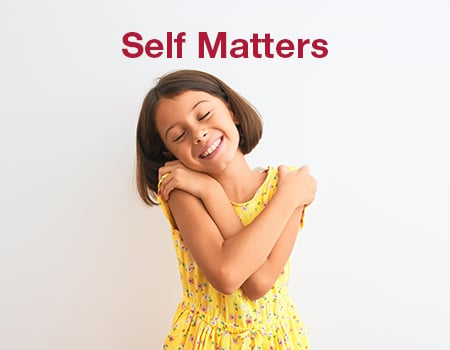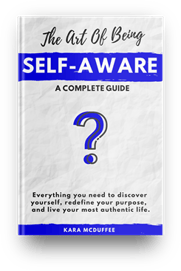From when we’re born, we’re encouraged to learn things. In the early years, we embrace learning like a sponge; we absorb everything, and anything as our brains begin to construct life. As we get older, we learn in more formal manners: from parents, older siblings, teachers, and schools. Pretty soon, our entire trajectory is centered around learning, whether it be for school, relationships, or work.
Even as an adult, you’ve probably heard the mantras around being a lifelong learner. There is always something new to learn. An opinion from a discussion, information from an article, a story from a book. I personally binge the podcast app like it’s my side job. Our learning opportunities are infinite.
After all, learning is a hugely important practice for growth. We need to learn new things to make new connections and expand our lives. But in the infinite wave of potential discoveries, another critical practice gets overlooked.
It’s just as important to practice unlearning.
Self-Awareness Crash Course: Brain Schemas and Confirmation Bias
While our brains might’ve started like a sponge, they hardened as we got older. The more times our brain is exposed to something, the more solidified that thing becomes in our mind (and in our body). Eventually, our brains form schemas that help us make sense of this incredibly complicated world.
For much of the time, these schemas are beneficial. I can retrieve a memory from my previous work experience. I become more accomplished at a skill. I know how to perform an action with ease. In all of these examples, I feel more confident because of the repetition.
They also can help me develop confidence in who I am as a person. Through experiences and inner work, I can determine my values and stick to them. I can begin to design my life around what I find meaningful. My purpose becomes more solidified through my learning.
When Learning Can Shape Us
In my senior year of college, I thought I wanted to be a college basketball coach. I had already learned that I loved the sport and interacting with players. But, as I learned more about the role through lived experiences, I realized that coaching basketball didn’t give me the fulfillment I was looking for. Instead, it was the interaction with students that I drew more meaning from.
Because I was open to learning - through both information and experience - I discovered more about myself. Learning is necessary for our self-discovery.
So when should we do the opposite of learning?
Learning and Confirmation Bias
The more we learn, the more firmly we believe in what we know. As a result, our brain’s confirmation bias kicks into full gear. We begin to interpret new information through a biased lens. If it supports what we believe, we listen. If it challenges our beliefs, we often ignore it or belittle it.
What’s worse, we do this without even realizing it. It’s our human nature to use this selective attention. The same benefits that this process gave us when we were trying to make sense of the world now work against us - because it blinds us to new truths.
While there’s always something new to learn, there’s only so much information that our brains can hold. Therefore, many of our beliefs shift into “permanent mode.” We lock in a certain mindset, even if it’s outdated.
What’s the answer? We’ve got to learn how to unlearn.
What is unlearning?
Unlearning requires us to let go of our old beliefs and ideas, even if we’ve held onto them for a long time. Essentially we need to inventory our mindset and flush out the old to make room for the new. This process can be incredibly vulnerable and uncertain, especially if our mindset is fixed in our identity.
Let’s go back to my basketball example. I had to unlearn the idea that basketball had to play a central role in my life. By letting go of basketball as part of my main job, I opened myself up to new possibilities in my life.
This might sound like an overly simplistic example, but it’s more telling than you might realize. For years, I defined myself as a basketball player. Shedding the label made me feel incredibly naked. Who was I if not a basketball player? How would people see me? How would I see myself?
Answering these questions required me to learn more about myself and what I wanted. But first, I had to unlearn the association I had between basketball and identity. If I didn’t, I would never move forward into greater self-discovery.
Your unlearning doesn’t have to center around identity. You might need to unlearn a belief, value, or opinion. You might need to completely unlearn a mindset.
But it won’t always be easy.
What makes unlearning so difficult?
While unlearning is critically important, it’s not easy. There are a few reasons.
First, many of our deeply held beliefs are so ingrained in us, we don’t even realize that we have them. These beliefs often started in childhood and carried with us into adulthood. They’re so solidified in our brains, we barely see them as something changeable.
Second, our society impacts our mindset in powerful ways. Whether through cultural norms, the media, or everything in between, we’re getting hit with messages from all angles. Sometimes we don’t even know what there is to learn versus unlearn.
Finally, letting go of old beliefs leaves us feeling uncertain and vulnerable. Sometimes it feels better to hold onto something than nothing, even if that something doesn’t serve us. Fear stops many people from doing the important unlearning that they need to do.
How to promote the practice of unlearning in your life
While unlearning is challenging, it’s not impossible. It’s a practice like anything else, and as such, it’s something you can work at to improve.
1: Question everything
Where our society and brains might close our outlook, questions can open it back up. Try to question everything, and make sure you focus on the motivation behind your actions. Some questions will merely make you feel more confident in what you’re doing! As for other beliefs, you might realize that your thinking no longer serves you. Remaining curious and humble has the power to completely transform your mindset - and your life.
2: Tune into your body
While our minds can trick us into thinking something, our bodies usually tell us the truth. Practice tuning in to your body and developing your embodied self-awareness. You might pick up on signs that alert you to aspects of your life that are outdated or harmful for your growth. In those instances, see if you can identify what triggered your body into having an adverse reaction. When you can pinpoint the trigger, you can begin to work toward unlearning it.
3: Journal regularly
Unlearning mindsets - especially ones so profoundly ingrained - is challenging. That’s why you need to get out of your head (after all, your head is the one filled with biases!). Journaling is an incredibly powerful tool to help you distinguish what you need to let go of. As you journal, see what works for you. Guided prompts can help you unlearn old beliefs, while freewriting might help you make discoveries you didn’t think you would.
4: Show yourself self-compassion
Learning has the potential to get you quick and immediate positive results. Unlearning, on the other hand, takes a bit longer to feel the benefits. As you embark on the vulnerable journey of shedding past beliefs, make sure to show yourself self-compassion along the way.
5: Find a tribe for inspiration
The thing about inner work is that it can make you feel very alone. That’s why you need to find a tribe for inspiration. You must turn to people and resources that will help you on your journey and remind you of the work that you’re doing.
Journaling Prompts
- When have you had to unlearn an influential part of your mindset? Your identity?
- What beliefs have you never stopped to question? What beliefs might no longer serve you?
- When does your body alert you to the fact that you’re not true to yourself?
- What can you gain from unlearning outdated beliefs?
- What can you do to show yourself self-compassion on your inner work journey?
Want more guidance for your learning and unlearning journey? Get on the list here for Mari L. McCarthy’s new book, Mindset Medicine: A Journaling Power Self-Love Book. Her book will help you tune out the cultural chaos and get back to your relationship with yourself.

Kara McDuffee is the writer and founder of My Question Life, a community dedicated to helping you discover yourself and find the answers you’re searching for. She gives you the questions you need to become more self-aware and vulnerable in your everyday life. To read her posts or download her free eBook The Art of Being Self-Aware, check out her blog.




Leave Comment